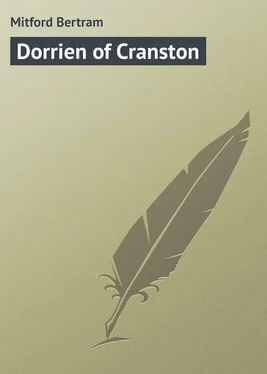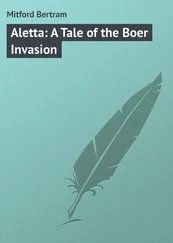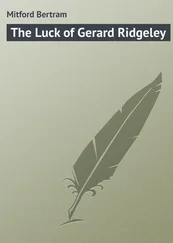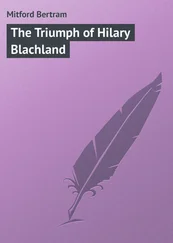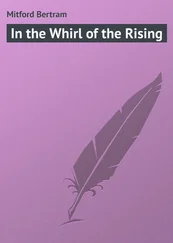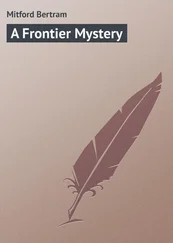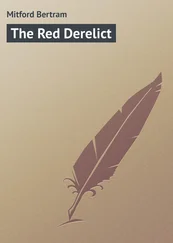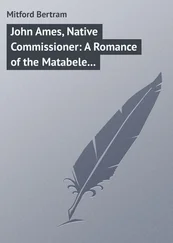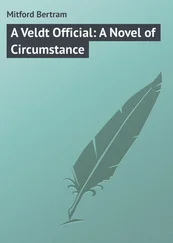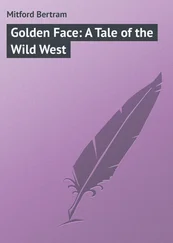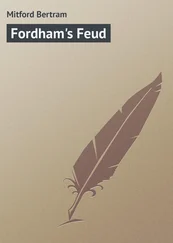Bertram Mitford - Dorrien of Cranston
Здесь есть возможность читать онлайн «Bertram Mitford - Dorrien of Cranston» — ознакомительный отрывок электронной книги совершенно бесплатно, а после прочтения отрывка купить полную версию. В некоторых случаях можно слушать аудио, скачать через торрент в формате fb2 и присутствует краткое содержание. Жанр: foreign_prose, на английском языке. Описание произведения, (предисловие) а так же отзывы посетителей доступны на портале библиотеки ЛибКат.
- Название:Dorrien of Cranston
- Автор:
- Жанр:
- Год:неизвестен
- ISBN:нет данных
- Рейтинг книги:4 / 5. Голосов: 1
-
Избранное:Добавить в избранное
- Отзывы:
-
Ваша оценка:
- 80
- 1
- 2
- 3
- 4
- 5
Dorrien of Cranston: краткое содержание, описание и аннотация
Предлагаем к чтению аннотацию, описание, краткое содержание или предисловие (зависит от того, что написал сам автор книги «Dorrien of Cranston»). Если вы не нашли необходимую информацию о книге — напишите в комментариях, мы постараемся отыскать её.
Dorrien of Cranston — читать онлайн ознакомительный отрывок
Ниже представлен текст книги, разбитый по страницам. Система сохранения места последней прочитанной страницы, позволяет с удобством читать онлайн бесплатно книгу «Dorrien of Cranston», без необходимости каждый раз заново искать на чём Вы остановились. Поставьте закладку, и сможете в любой момент перейти на страницу, на которой закончили чтение.
Интервал:
Закладка:
“I’m afraid it is. In fact – it is,” replies Olive, and her rueful smile changes to a brighter flash as she looks up at him. “But it was not altogether his fault – nor yours. I called him.”
“Oh! He is such a clumsy fellow sometimes, and yet he ought to have learnt manners by now. Here – Roy! Come here, you villain, and see what you’ve done. Now – what have you to say for yourself, sir!”
The dog walks slowly up with a downcast air and a drooping tail, though the latter is softly agitating in deprecatory wags. He looks very penitent beneath his master’s stern tones, but there is no trace of cowering.
“Please don’t be angry with him,” says Olive. “It really was all my fault for calling him. But, then, he is such a beauty.”
“There, Roy. Do you hear that – you bad dog? Come here and apologise. It isn’t often you fall in with those who return good for evil. Here – give a paw – no, not that one – the other.”
Sitting down in front of Olive, the dog lifts his right paw and gravely places it in her little hand.
“Now the other!” cries his master – and he repeats the performance with the left, looking up into her face with such soft, pleading eyes.
“There,” says Roy’s master. “You don’t deserve to be treated so generously, you bad dog. And now” – turning to Olive – “will you let me try and remedy the mischief? There must be fresh water somewhere about the cliffs.”
“Oh, I couldn’t think of troubling you to that extent. Besides I am not bound to draw this morning. I have a book here, and would just as soon read instead.”
But this does not meet the stranger’s views at all. He intends to talk to this girl, now that a fortunate chance has put it in his power to do so. He can do so while she is drawing – hardly if she reads. So he answers, but without eagerness:
“It will be no trouble at all. And I think you ought to draw this morning, because it is just one of those days which are built for that purpose. You can read at home, but you can’t reproduce this perfect bit of coast anywhere but here. So I’ll start off upon my errand of reparation before you are angry with me for presuming to lecture you,” and picking up the little canister away he goes.
Olive laughs softly to herself as she looks after him. He is so cool and self-possessed, and then his voice, too, is a very pleasing one. Who can he be? She hopes he will return soon with or without the water, and not be in a very great hurry to continue his walk. Then she is the least bit in the world frightened. What would Margaret, for instance, say if she could see her sitting in this out-of-the-way corner of the seashore, talking to a man who is a perfect stranger? And how the tongues of Wandsborough would clack – a phase of exercise, by the way, to which those unruly members were by no means unaccustomed. Anyhow she can see at a glance that the man is thoroughbred. If he is making any stay in Wandsborough, as she is inclined to think is the case, she is sure to meet him sooner or later, so why not forestall the acquaintance? If he is not, why then in all probability she will never see him again, and in either case there is no harm done. She is thus musing, when the object of her reflections appears at her side, as suddenly as he did before.
“I have been successful,” he says, setting down the canister very carefully. “But I am afraid you were waxing impatient.”
“Not at all. I think you have been very quick, and I did hope you would be able to find me some water, for I feel in the humour for daubing just now.”
“Good. And now allow me to arrange the necessary articles,” and without waiting for an answer he opens her colour-box and sets her palettes and brushes in order.
“An artist,” thinks the girl. “Of course that’s what he is,” and on the strength of this inspiration she ploughs away nervously with her brush, though shyness as a rule is not one of those sins which can fairly be laid to Olive Ingelow’s charge.
“That won’t do,” presently remarks the stranger, who is leaning lazily against the rock watching her work. “Excuse me – but you must just round off this outline a little more – it is too hard and steely – so,” as acting obediently on his directions the drawing begins to assume life-like shape.
“I suppose you paint a great deal?” ventures Olive deferentially. Who knows what R.A. of renown may be criticising her crude attempts!
“No, I don’t.”
“But you used to,” she persists.
“Never wielded a brush in my life.”
“But you seem to know all about it. How in the world could you tell me to make those alterations if you can’t paint yourself?” she asks quickly, her incredulity giving way to a flash of not unnatural resentment.
“Pardon me. I didn’t say I couldn’t. What I said was that I never had.”
“Isn’t that the same thing?”
“No, because I could – if I tried.”
“How do you know you could?”
“Well, since you so mercilessly bring me to bay I am compelled to answer you with a woman’s reason. I know it – because I do.”
They both laugh heartily.
“And now tell me,” goes on the stranger. “What is the name of those two eccentric towers of rock you are drawing?”
“They are called The Skegs. There is a story attached to them, and a ghost.”
“Yes? What sort of a one?”
“Well, it’s rather an eerie affair altogether. Most family ghosts haunt the family seat. That of the Dorriens seems to prefer the open air. The story is a very old one. Two Dorriens fell madly in love with the same girl.”
“Not an uncommon circumstance. And did they fight – or play écarté for her?”
“Neither. One killed the other. It’s a long story, and I’m very bad at telling long stories. I always mix up the people and begin by telling the end first. But the end of this one is that The Skegs are haunted by the murderer’s ghost, and that it only appears before the death of a Dorrien. Then a black cloud settles down upon the highest of the two rocks, and those who see it can distinctly hear the wild baying of a dog. And it takes the shape of one.”
“A decidedly uncanny, though not original form, for there’s no part of the world without that very phase of apparition,” remarks the stranger, gazing thoughtfully at the two great rock towers. “Has anyone ever seen this spectre?”
“Yes. When Captain Dorrien was lost in the Alps three years ago, the fishing people in Minchkil Bay say it appeared. They believe in it implicitly. It was seen, too, at just about the time old Squire Dorrien, the General’s brother, died at sea.”
“And do you believe in it?”
“I don’t know. I suppose not. And yet if I were anywhere near the spot at night I’m sure I should be horribly afraid of seeing it. None of the fishermen like to go near The Skegs at night, but I suppose we ought to rise above such beliefs. Even my father won’t say he doesn’t believe in it, but he always rather evades the subject, so I don’t press it.”
“Quite right. And who are these Dorriens for whom the laws of Nature condescend to alter their course?”
“Ah! Now you’re laughing at my story. Never mind. They are the largest landowners hereabouts and their place is Cranston Hall. It lies in a line with that lofty headland – that’s Minchkil Beacon – three miles from Wandsborough.”
“What sort of people are they?”
The girl gives a little shrug of her shoulders and makes a distasteful moue . “Not nice. At least nobody likes them much. I don’t, though I don’t know them personally. It’s a case of instinctive dislike.”
“So you indulge in instinctive likes and dislikes,” says the stranger with a queer smile. “A very feminine trait.”
Читать дальшеИнтервал:
Закладка:
Похожие книги на «Dorrien of Cranston»
Представляем Вашему вниманию похожие книги на «Dorrien of Cranston» списком для выбора. Мы отобрали схожую по названию и смыслу литературу в надежде предоставить читателям больше вариантов отыскать новые, интересные, ещё непрочитанные произведения.
Обсуждение, отзывы о книге «Dorrien of Cranston» и просто собственные мнения читателей. Оставьте ваши комментарии, напишите, что Вы думаете о произведении, его смысле или главных героях. Укажите что конкретно понравилось, а что нет, и почему Вы так считаете.
